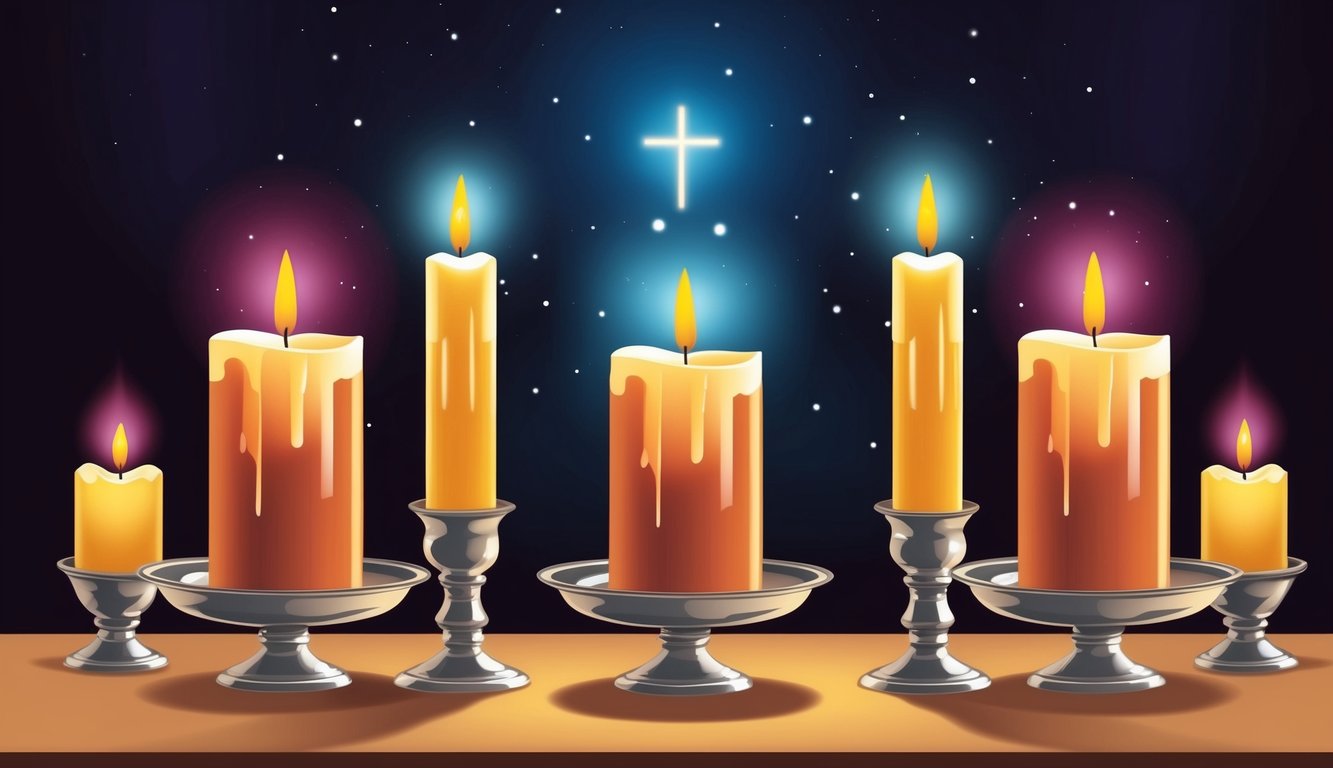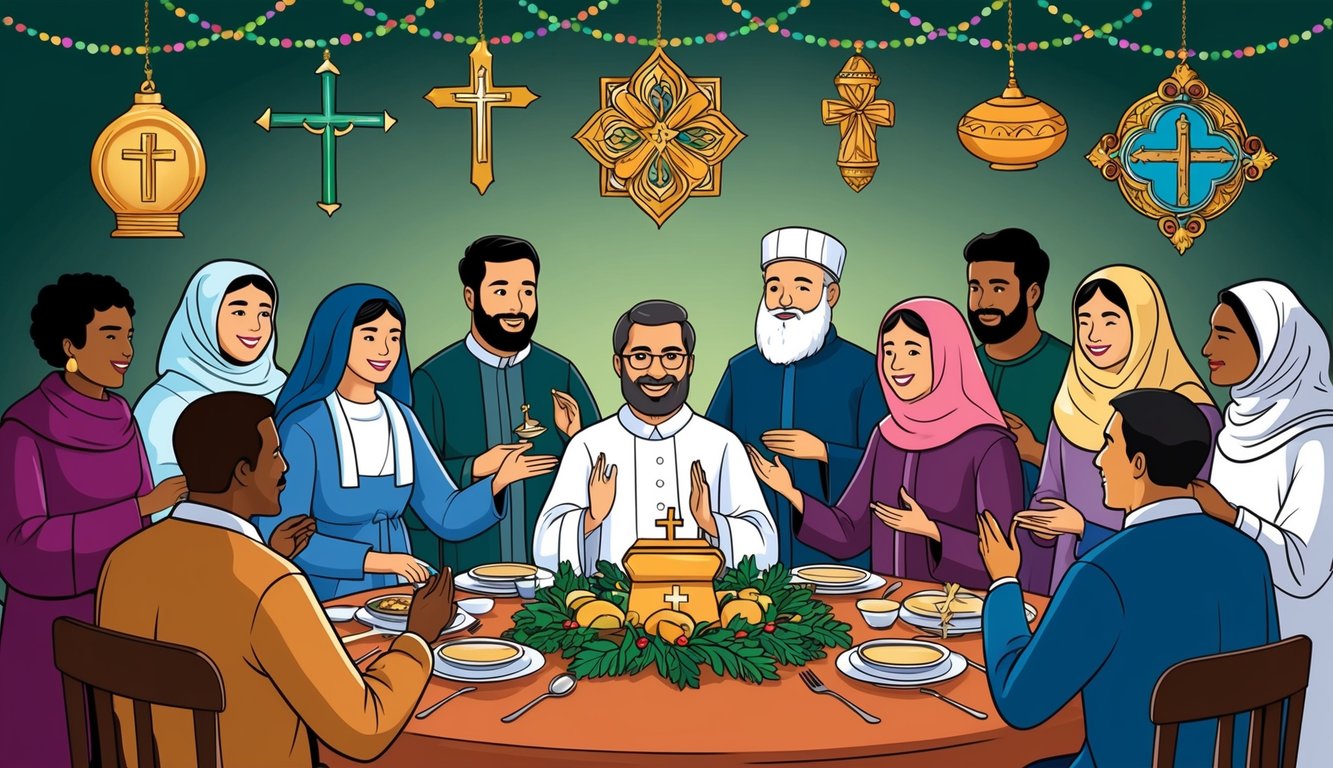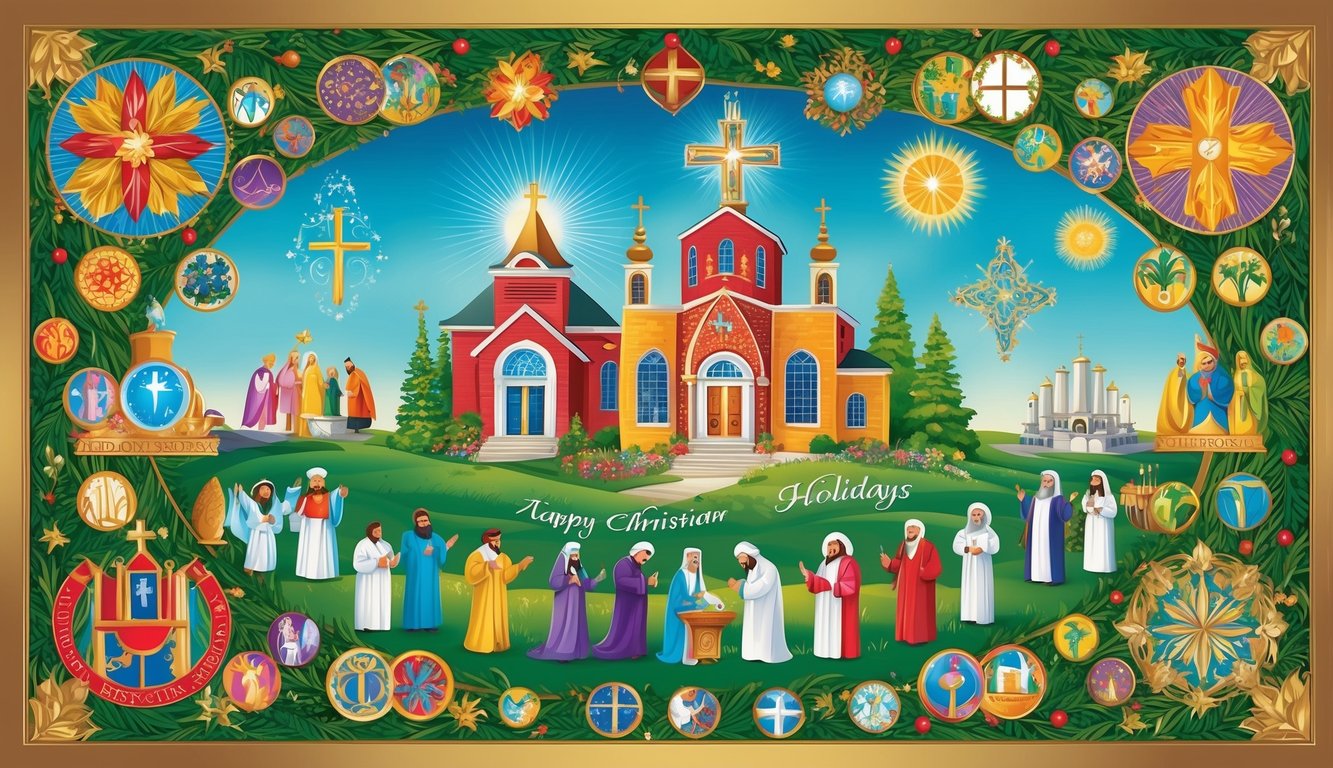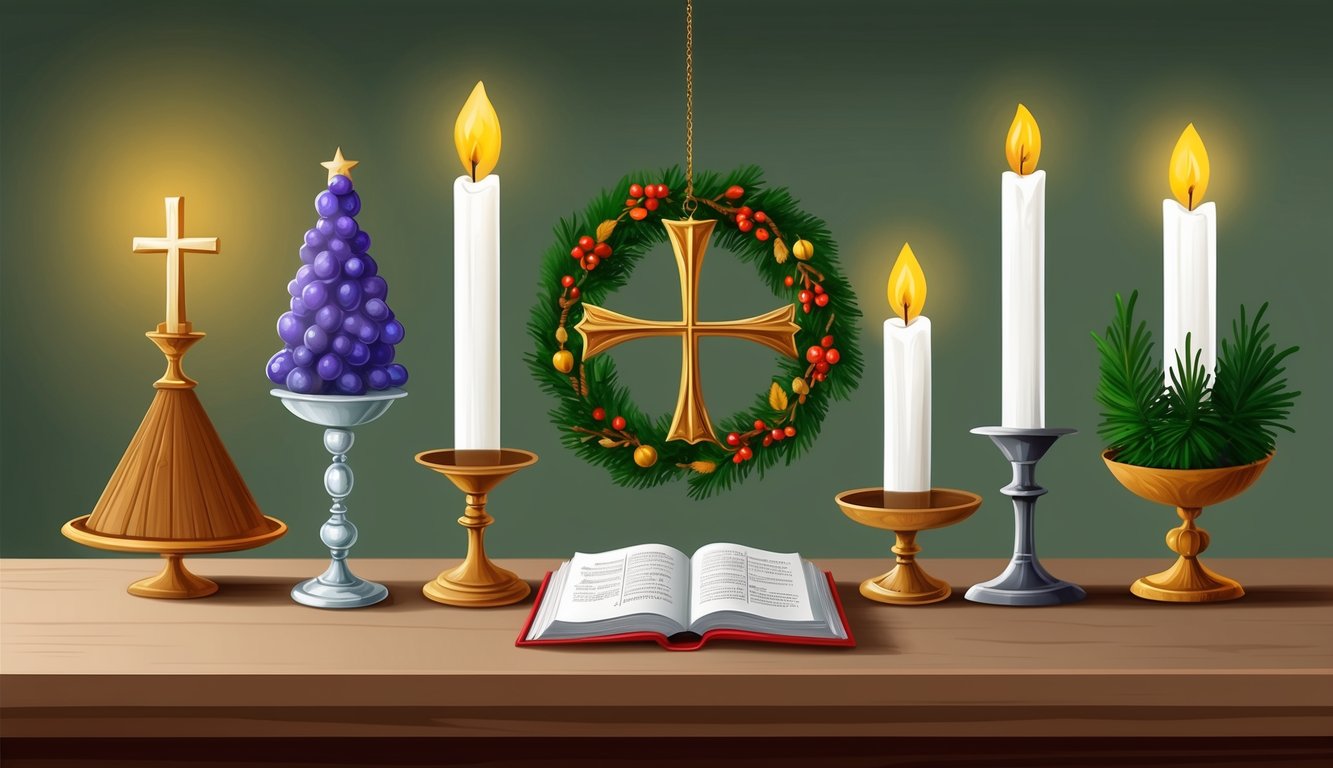Don’t Miss Out On This Unique Astrological Opportunity
Are you tired of spinning your wheels and getting nowhere? Simply put, you’re out of sync: you’re out of alignment with your astral configuration.
But: there’s a kind of map that can help you reclaim your alignment. Think of it as your own personal blueprint to success and happiness: a blueprint that will help you live your most amazing life.
Get started here.
Christianity has a rich history filled with diverse celebrations that may not be as well-known as Christmas and Easter. Exploring these lesser-known holidays can deepen your understanding of the faith and its many traditions. Each holiday offers unique insights into the beliefs and practices that shape the lives of believers.

As you discover these special days, you may find connections to historical events and meaningful rituals.
These celebrations help to enrich the Christian experience and strengthen community ties.
Each holiday offers unique insights into the beliefs and practices that shape the lives of believers.
Feast of the Assumption
The Feast of the Assumption is a special day in the Christian calendar.
It celebrates the belief that Mary, the mother of Jesus, was taken up into Heaven after her earthly life.
This event is believed to have happened body and soul.
This feast is marked on August 15 each year.
It is an important holy day for many Catholics, who are required to attend Mass.
Many parishes hold special Masses, including a vigil Mass the evening before.
In some places, this day is celebrated with great joy and festivities.
For example, in the Maltese Islands, people honor Mary with local celebrations in various churches.
In the Eastern Churches, this feast is called the “Dormition of the Mother of God.” “Dormition” means “falling asleep,” referring to Mary’s death before her assumption.
The teaching about the Assumption was formally declared in 1950 by Pope Pius XII.
He confirmed that Mary was taken into Heaven to be with God.
This belief is not just a tradition; it is rooted in Christian faith.
2) Saint Lucy’s Day

Saint Lucy’s Day is celebrated on December 13 each year.
This special day honors Saint Lucia of Syracuse, a Christian martyr from the early fourth century.
Lucia is known for her bravery and faith.
According to legend, she brought food to Christians hiding in the catacombs of Rome.
She wore a wreath of candles on her head to light her way, symbolizing hope and light in dark times.
In many places, especially in Sweden and other Scandinavian countries, this day includes festive traditions.
People often celebrate with processions and special foods.
The name “Lucy” comes from the Latin word “lux,” which means light.
This connection ties the feast day to themes of light amidst darkness, making it quite meaningful for many.
Saint Lucy’s Day is a great chance to reflect on faith, hope, and the strength of light in our lives.
It encourages you to focus on bringing light to others during the darker months of winter.
3) Epiphany
Epiphany is celebrated on January 6th and marks an important event in the Christian calendar.
It commemorates the revelation of Jesus Christ to the world, especially to the Magi, or Wise Men.
During this holiday, many churches hold special services.
You might see decorations and hear readings that highlight the significance of this day.
The word “Epiphany” means “manifestation” in Greek.
It reminds you of Jesus’ shining forth as the Savior.
Some traditions include a special meal or family gatherings to honor this event.
In some cultures, this day is the end of the Christmas season.
Celebrating Epiphany can deepen your understanding of Jesus’ life and mission.
You may also find that some families share blessings during this time.
This act serves to invite God’s presence into their homes for the new year.
4) Candlemas

Candlemas is celebrated on February 2.
This holiday marks the presentation of Jesus in the temple.
It also honors Mary’s purification after giving birth.
Many people don’t know that Candlemas has roots in ancient pagan traditions.
It was a time for lighting candles to chase away the darkness of winter.
In some cultures, the day includes a candle-lit service.
You might find churches blessing candles for use throughout the year.
This practice symbolizes Christ as the light of the world.
Different countries have unique traditions for Candlemas.
For example, in parts of Europe, there’s a custom of eating pancakes.
If you want to connect with this holiday, consider lighting a candle at home.
Reflect on its meaning and the hope it brings for the days to come.
Candlemas can be a special time for you to think about faith and family.
5) Lady Day

Lady Day is celebrated on March 25.
This day marks the Feast of the Annunciation, when the angel Gabriel told Mary she would give birth to Jesus.
This event is significant in the Christian calendar.
It reminds you of the humble beginnings of Jesus and the faith of Mary.
Many Christians honor this day with prayers and special services.
Lady Day has roots in both religious and historical traditions.
In some cultures, it also marks the start of spring.
This connection to nature can add a beautiful layer of meaning to the celebration.
In certain countries, Lady Day has legal significance too.
For instance, some contracts and agreements used to start on this date.
This shows how deeply intertwined faith and daily life can be.
Celebrating Lady Day can help you reflect on themes of faith, hope, and new beginnings.
It’s a wonderful opportunity to connect with the deeper aspects of your faith and the joy of upcoming life.
The Cultural Significance of Lesser-Known Christian Holidays

Lesser-known Christian holidays offer a glimpse into the diverse traditions and deep history of the faith.
These celebrations enrich the lives of believers and strengthen community bonds.
Many of these holidays focus on reflection, charity, and acts of kindness, encouraging believers to deepen their faith through service.
They provide opportunities to serve others in your community, whether through volunteer work, donations, or simple acts of compassion.
By participating in these traditions, individuals can strengthen their connection to both their faith and those around them.
Historical Context and Traditions
Many lesser-known holidays have roots in significant biblical events or ancient traditions.
For example, Epiphany, celebrated on January 6, commemorates the visit of the Magi to the baby Jesus.
This holiday has evolved over time, incorporating local customs, such as the King Cake tradition in New Orleans.
Another holiday, Ascension Day, marks the day when Jesus ascended to heaven.
This day is often celebrated with special church services and gatherings.
These holidays highlight not only key moments in Christianity but also showcase unique customs from different cultures that have developed over centuries.
How These Holidays Are Celebrated Today
Today, these holidays are often marked by special church services, family gatherings, and community events.
Many people engage in traditions that reflect their cultural backgrounds.
For instance, during All Saints’ Day, celebrated on November 1, families might visit cemeteries to honor deceased relatives.
Celebrations may include feasts, music, and prayers that reflect the themes of each holiday.
Some communities host festivals or parades, bringing people together in joyful celebration.
This mix of faith and local culture allows believers to share their faith in meaningful ways, creating a sense of belonging and connection.
Comparing Popular and Lesser-Known Christian Holidays

Christian holidays can differ greatly depending on where you are and your local culture.
While major holidays like Christmas and Easter are widely known, many lesser-known holidays offer unique insights into the faith.
The Influence of Geography and Culture
Geography and culture play a significant role in shaping how Christian holidays are observed.
For example, in Mexico, Día de los Muertos coincides with All Saints’ Day, celebrating both life and death.
This mix reflects local customs and the importance of family.
In contrast, in Ethiopia, Genna is celebrated on January 7, featuring unique traditions like traditional foods and outdoor sports.
Each region adapts its holidays to reflect local beliefs and customs, offering a richer understanding of Christianity.
Unique Practices and Observances
Lesser-known Christian holidays often have unique practices that highlight different aspects of faith.
For instance, Epiphany marks the visit of the Magi and is celebrated with water blessings and processions.
This offers a different view of Jesus’ early life.
Another less recognized holiday, Ascension Day, commemorates Jesus’ ascension into heaven 40 days after Easter.
Some celebrate with special church services or feasts.
These unique observances help deepen your appreciation for the diverse expressions of faith within Christianity.
Frequently Asked Questions

You might be curious about some lesser-known Christian holidays and their meanings.
These celebrations often hold deep significance and reflect unique traditions within Christianity.
Here are some common questions and their answers.
What are some lesser-known Christian holidays and their significance?
Lesser-known holidays include the Feast of the Assumption, which honors the belief that Mary was taken into heaven.
Saint Lucy’s Day celebrates the patron saint of the blind and light, observed with processions and special foods.
Can you name a few Christian celebrations that are not widely observed?
Besides the major holidays, you might find Epiphany interesting.
This day marks the visit of the Magi to Jesus and is celebrated with various customs in different cultures.
Candlemas, observed on February 2, is another lesser-known holiday that commemorates the presentation of Jesus in the temple.
Which obscure Christian feast days might we not be aware of?
Lady Day, or the Feast of the Annunciation, is celebrated on March 25.
This day remembers the announcement to Mary that she would give birth to Jesus.
These feast days vary in recognition depending on different Christian traditions.
Are there any unique regional Christian holidays that are not typically celebrated globally?
Yes, there are regional holidays.
For instance, in some areas, Saint George’s Day is celebrated with parades and gatherings.
Such celebrations can be highly localized and rich with cultural significance.
What are some ancient Christian festivals that are no longer commonly practiced?
Some ancient festivals have faded from common observance, like the Feast of Fools, which allowed for playful reversal of norms.
While not practiced today, these festivals reflect the diverse history of Christian celebrations.
How do Christians recognize lesser-known holy days on their calendar?
Some Christians celebrate these days with special services, prayers, or family gatherings.
Recognizing these holidays can help enrich your understanding of Christian traditions and foster community.



